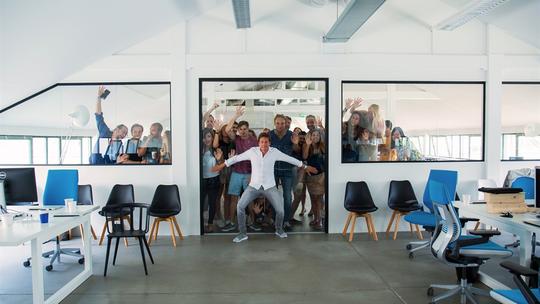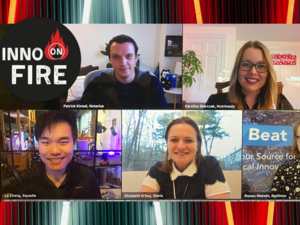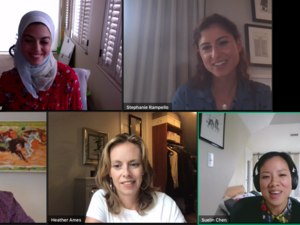
The Boston office of Bynder is going to be very quiet this week.
That's because the Amsterdam-based marketing tech company has essentially kicked out the employees of its six offices across the world for one week. No, the employees are not getting laid off or fired. Instead, the company's CEO, Chris Hall, wants employees to take advantage of benefits employees may shy away from: remote work and flexible hours.
When companies try to offer flexible work benefits like remote work or unlimited vacation, there can be a tendency for employees to avoid using those benefits because they fear colleagues won't perceive them as hard workers.
"They might have these policies but in the real world there's a taboo of actually living up to it," said Hall, who opened Bynder's Boston office in 2013.
After Bynder started taking proactive measures to make sure people actually used their unlimited vacation benefit and took off more time, the company is taking a similar approach with its remote work policy. For the entire week of July 30, the 60 employees at Bynder's Boston office and the roughly 240 workers at its other offices are being encouraged to try working at home or another space, whether it's a coffee shop or a desk at WeWork, which the company has partnered with to provide flexible working space.
One of the problems of modern work life, Hall said, is that not everyone performs their best in the office during the normal 9-5 work shift. What makes matters worse, he added, is that "there's a culture of staying at work late just to show you're putting in the time."
By giving employees flexibility for when and where they work, Hall said, they can ultimately become more productive and efficient. For managers, it means focusing less on the amount of hours employees put in and more on their actual input.
"From a manager's perspective, it's a really good exercise because it's easy to manage on input," Hall said, but "it’s much better to manage people based on output."
With Bynder planning to hire roughly 50 people within the next year at its Boston office, Hall hopes that the company's flexible work policies — and its commitment to making sure employees take advantage of them — is part of what can help Bynder find the right talent.
"You can't compete with money anymore. We’re trying to compete with culture," Hall said.








